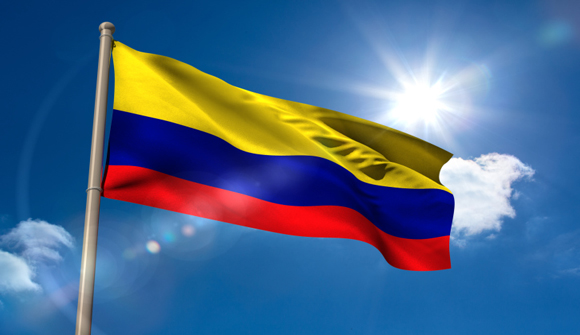

This week the government of Colombia took a giant step forward in its peace process. How? Well, if you haven't heard yet, Colombia announced it had formalized a legal framework to regulate the research and development, legal cultivation, processing and exportation of cannabis for scientific and medical purposes.
And while this may have come as a shock to many, to us it was an anticipated and welcomed accomplishment. We applaud the Colombian government for courageously taking a leadership position in advance of the UN General Assembly Special Session (UNGASS) on Drugs scheduled to take place in New York this coming April.
UNGASS 2016 is expected to usher in sweeping reforms to the prevailing international drug policy. As the world's regulatory agency, the UN (together with the World Health Organization) will inevitably enact rules specific to cannabis that will facilitate a market that is rigorously regulated, environmentally friendly and constrained to highly standardized medicinal-grade products.
In fact, UNGASS 2016 was supposed to be held in 2019 but the date was fast-forwarded due to intense pressure from within the 193 member-state body. There are two key drivers speeding up the global "change" as it relates to how we deal with the drug issue and the disastrously failed thinking behind the prohibitionist war on drugs.
The first was a request to the UN by the presidents of Colombia, Guatemala and Mexico to focus its next special session on drugs on policy reform, rather than another progress review and the continuation of a failed drug policy. A formal proposal to do so – sponsored by Mexico and co-sponsored by 95 other countries – was approved.
Secondly, that urgency was boldly reinforced in 2014 when a public event live-streamed around the world made an unequivocal statement that global drug policy simply must change. The Global Commission on Drug Policy publicly called for "an end to the criminalization of drug use and possession and responsible legal regulation of psychoactive substances." Members of the commission included the former presidents of Brazil, Chile, Colombia, Mexico, Poland, Portugal and Switzerland, former UN secretary-general Kofi Annan and business mogul Richard Branson. Even top US officials George Shultz and Paul Volcker added their voices in support of global reform.
As a result, the next UNGASS on Drugs will convene in April 2016. The significance of UNGASS 2016 cannot be overstated. This special session will bring together the UN's General Assembly, which is the principal policy-making organ of the UN and the only one in which all 193 UN member states have equal representation, to focus specifically on drug policy reform.
The impetus of worldwide coordinated change will be a UN-codified global regulatory policy for legalized medicinal and recreational cannabis that shifts from warring against illegal suppliers to regulating and standardizing suppliers and attacking demand through education and compassionate treatment programs for addicts.
Fearing proponents within UN agencies may be forced to reverse their position because of pressure from particular nations, on October 19th Richard Branson publicly leaked a UNODC briefing paper intended for delivery at an upcoming UNGASS preparatory session. Entitled "Decriminalisation of Drug Use and Possession for Personal Consumption," the paper was prepared "to inform country responses to promote a health and human rights-based approach to drug policy." The paper "explains that decriminalising drug use and possession for personal consumption is consistent with international drug control conventions and may be required to meet obligations under international human rights law."
Heads of state, led by those of Latin American nations – most notably Colombia – have pushed the UN to rewrite international drug policy and thus bring to an end the war on drugs. These leaders cite the heavy toll existing policies have taken on society: Scientists bemoan the hindrance to life science and medical research, untold numbers of people have been killed, entire economies have been decimated and millions of lives have been destroyed through incarceration for victimless drug possession charges.
No nation on Earth has seen its soil and society scorched more than Colombia, which has been at the epicenter of the global war on drugs. An estimated 450,000 Colombians have been killed, and family and social structures were decimated as 2.5 to 4 million people were displaced. And the country has suffered immense reputational damage due to the illegal activities of a minority of its population of nearly 50 million.
It's simply indisputable that more than any other nation, Colombia and its citizenry deserve the opportunity to show leadership in this worldwide industry and to reap the inherent associated financial and societal benefits. It will be a securely structured and extremely tightly regulated industry, as the new decree sets forth.
Having lived and worked in Colombia for much of the last 13 years I have developed a deep connection to the country and its people. It is a beautiful, diverse land that has been held back for decades by reins of fear funded by illicit activity. And now, free from the shackles of the black market, one can only imagine the tremendous rejuvenation of hope and prosperity this will ignite. I applaud this move by President Juan Manuel Santos and his ministers of agriculture, health and justice.
Colombia's equatorial location and environmentally friendly growing conditions make it the obvious country to profit from such a rapidly whitening global cannabis industry – in many ways:
Today, President Juan Santos is only two or three days away from issuing this monumental decree that positions Colombia to demonstrate a mature, environmentally conscious leadership approach to regulating and standardizing one of the very same plants that has been at the root of so much agony and international reputation damage.
As Mr. Santos has proved once again, he has the courage it takes to make bold and tough policy decisions. His remarkable achievement in Havana towards establishing lasting peace with FARC has many suggesting he deserves to earn the Nobel Peace Prize.
Perhaps Mr. Santos will be the first sitting president to earn not one but two Nobel Prizes by intelligently positioning his country to take a leadership position in shaping global drug policy and helping to usher in mature policy that stops the flow of capital to subversive and societally destructive factions by turning the very plant responsible for funding so much chaos into a force for good, for his country and the world.
The time has come for Colombia to show the world its innovative capabilities in a completely different light – one that illuminates a new future and darkens the past.
In closing, the lyrics from "Odio por Amor," written and recorded by my friend Juanes – a Colombian multiple Grammy Award-winning international superstar – seem apropos here:
It's time to change
es tiempo de cambiar
it's time to change
el odio por amor
it's time to change
es tiempo de cambiar
en la mente de todos
el odio por amor.
it's time to change…
